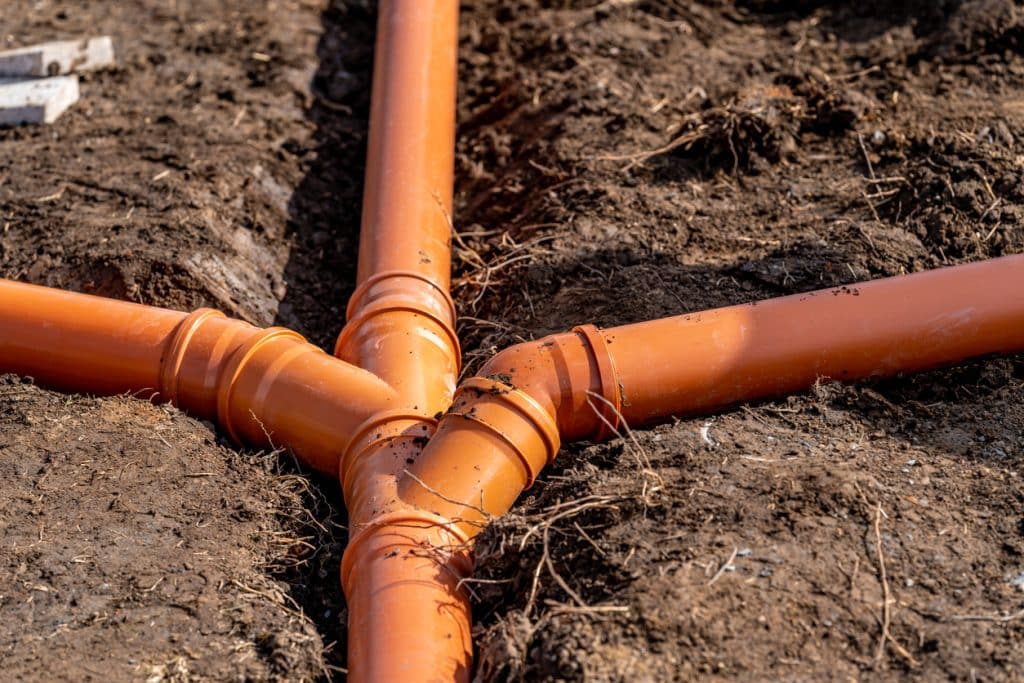The most common sewer line problem by far is the classic clog. Top causes include pouring grease down the drain and children flushing items they shouldn’t. But clogs can occur due to external sources as well. Watch for signs that you have bellied, broken, or corroded pipes.
Tree Roots
Invasive tree roots are the most common cause of sewer line clogs that originate outside the home. Tree and shrub roots continue to grow and seek out moisture. That can lead them to your sewer pipes. This is particularly true if you live in an older home. Plumbers used to use clay and other porous materials. The connections between pipe sections also weren’t as tight as they are now.
The roots will wrap right around the pipe. They may be able to infiltrate through tiny imperfections in a connection. Even without that access, roots can eventually infiltrate directly through the pipe material. The root will continue to grow inside the line and inevitably cause a serious clog.
Corrosion
Plastic pipes, such as PVC, CVPC, and PEX, won’t corrode over time. If you have a newer home, chances are you’ll never have to worry about a corroded sewer line. On the other hand, if you live in an older home, then corrosion is a real concern. In fact, the industry recommends that if you have a clay or iron sewer line, you should upgrade it proactively before an issue occurs.
Corrosion in sewer lines is largely due to hydrogen sulfide that the sewage off-gases. It accumulates inside the pipes, oxidizes the pipe walls, and eventually weakens them. The cracks will be minor at first, and the problem will worsen over time. If you notice unexplained sogginess in your yard, this can indicate a leak of the sewer line or main water line.
Shifting Ground
Shifting ground can cause a pipe to belly. This means that the pipe has a valley in it that impedes flow and is more prone to clogging. Shifting ground can also outright break a pipe or undermine its connections.
The ground can shift around your home as a natural occurrence. It can also happen due to landscaping and construction projects. Even additional foot traffic is enough to cause it, and it’s a particular concern when using heavy equipment, such as a backhoe.
Joint Leakage
If joints in a sewer line wear out, sewage will then seep into the property. This may cause sogginess or even ponding water. If you notice this, it’s important to act fast. If a plumber gets to the problem early enough, fixing a joint is much less expensive and time-consuming than fixing a broken pipe, which will happen when the support around it deteriorates.
If you live in Savannah, GA and are experiencing problems with your sewer line, call TNT or book your appointment online.






